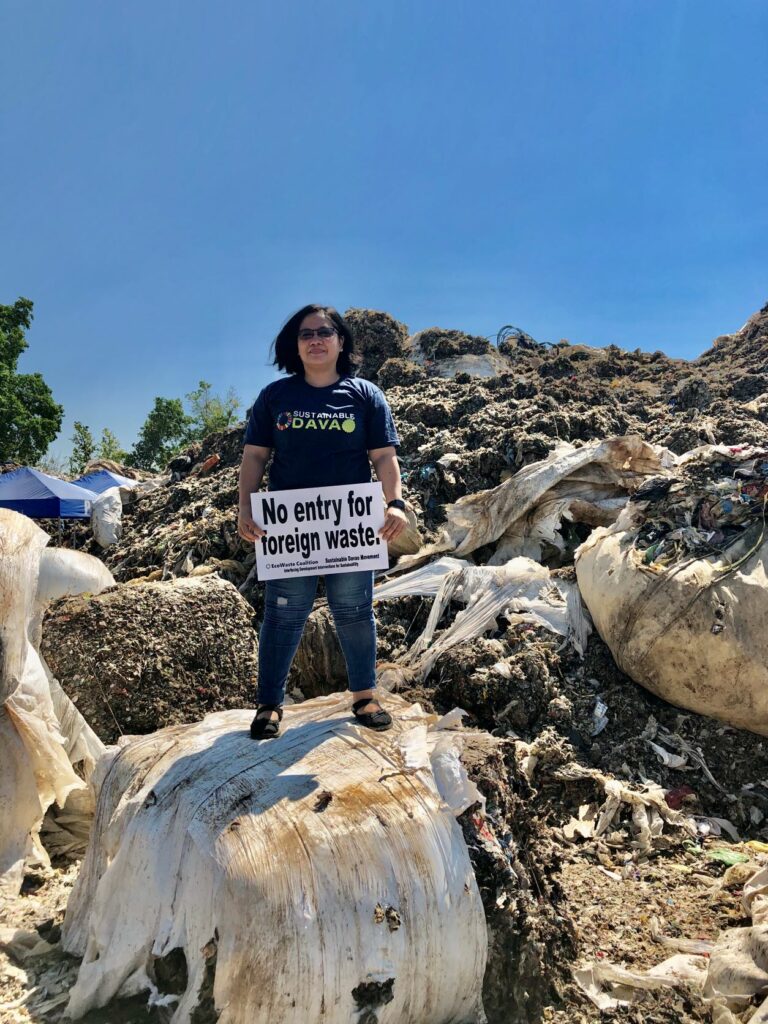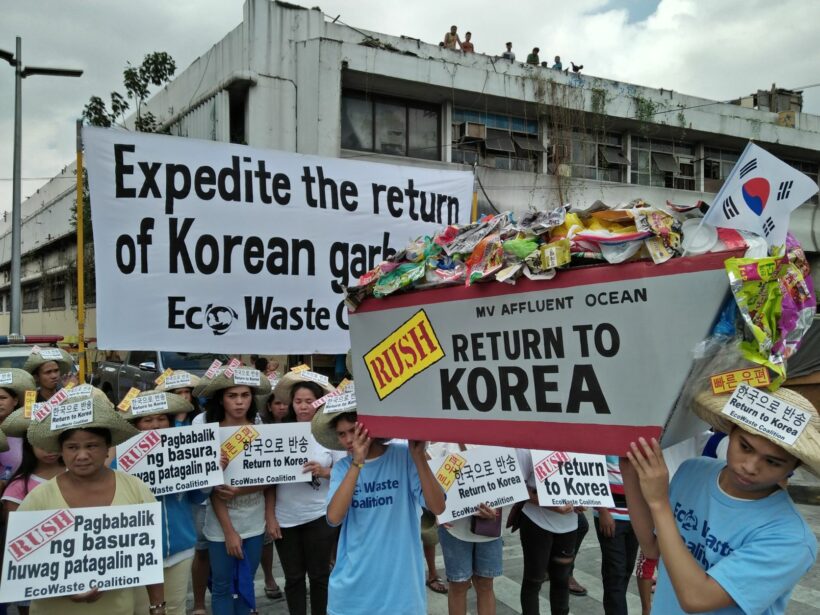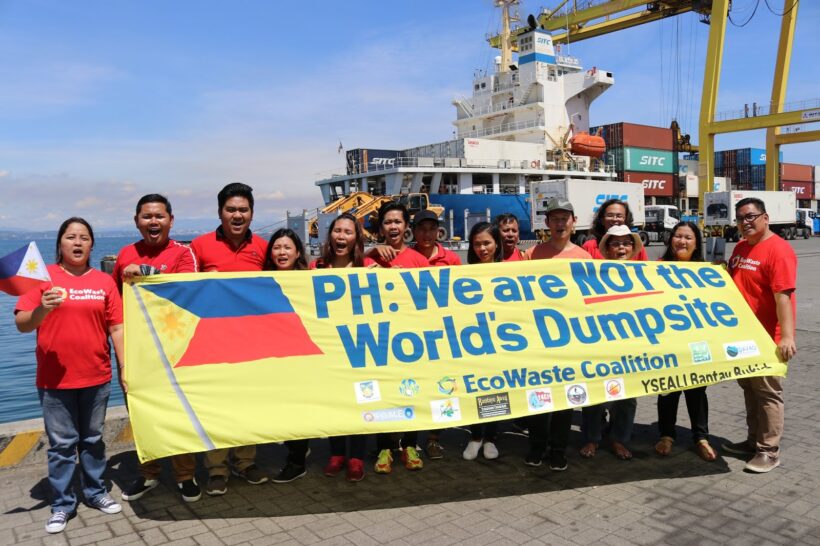20 October 2022, Quezon City. Civil society groups advocating for a zero waste and toxics-free Philippines are appealing to the government anew to adopt pivotal measures that will protect the country from the detrimental impacts of exploitative global waste trade.
At the recently concluded General Assembly of the EcoWaste Coalition, the groups passed a resolution urging President Ferdinand Marcos Jr. to ratify the Basel Convention Ban Amendment, an international law prohibiting hazardous waste exports from developed to developing countries. To date, 101 parties have ratified the said amendment, which entered into force on December 5, 2019.
To plug loopholes in current regulations that permit the importation of recyclable materials containing hazardous substances, the groups further asked the president to declare a national ban on all waste imports.
“These twin policy measures — ratifying the Basel Convention Ban Amendment and declaring a comprehensive ban on waste imports – are essential to provide our country with a strong legal protection against dumping and ensure that the right of every Filipino to a clean, healthy and sustainable environment is upheld,” said Aileen Lucero, National Coordinator, EcoWaste Coalition. “It’s our turn to shut our doors to illegal and ‘legal’ waste imports and send an unequivocal message to waste brokers and traffickers that we are dumping grounds no more.”
“The Marcos administration must make the ratification of the Basel Convention Ban Amendment a priority, as it is a crucial step in protecting Filipinos’ right to a healthy environment. Beyond safeguarding the Philippines from hazardous waste and all the associated risks created by waste trade, it safeguards our nation from exploitation by wealthier states who must be stopped from externalizing the costs of their waste generation to lower-income countries and be made accountable for their own waste,” said Marian Ledesma, Zero Waste Campaigner, Greenpeace Philippines.

An activist stands atop piles of dumped garbage from South Korea.
Environmental activists are not the only ones bucking the entry of waste from overseas. Among their most passionate allies is John Simon, an official of the Bureau of Customs (BOC), who is responsible for the decisive re-export in 2019-2020 of some 7,408 metric tons of contaminated plastic garbage shipments from South Korea. For this huge accomplishment, Simon received in 2021 the Environmental Justice Award from the EcoWaste Coalition and the Asia Environmental Enforcement Award from the World Customs Organization and the United Nations Environment Programme.

Citizens push for the return of contaminated plastic waste from South Korea to its origin.
“Our bitter experience with the contaminated and illegal waste imports from South Korea, Hong Kong, Australia, and Canada, which are still fresh in our people’s minds, tells us that strong policies are needed to end the entry of hazardous waste and other wastes into our territory. To protect the national interest from the adverse effects of foreign waste dumping, let’s ratify the Basel Convention Ban Amendment and stop waste imports now,” stated Simon, former BOC-10 District Collector who is now stationed at the Port of Clark (Clark International Airport).
Aside from ratifying the Basel Convention Ban Amendment and imposing a national ban on waste imports, the EcoWaste Coalition and its member groups are also urging the authorities to stop plastic pollution at source, ban single-use plastics, list non-environmentally acceptable products and packaging for phase-out, and declare government’s commitment to a zero waste and non-toxic circular economy.
Reference:
https://www.greenpeace.org/static/planet4-philippines-stateless/2020/03/da311344-waste-trade-in-the-philippines-report-v2.pdf
https://ipen.org/sites/default/files/documents/waste_trade_in_asean-final_revised.pdf






